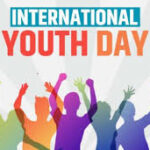The Impact of Returned Peace Corps Volunteers (RPCVs)
Returned Peace Corps Volunteers (RPCVs) are individuals who have completed their service in the Peace Corps and have returned to their home countries. These individuals bring with them a wealth of experience, knowledge, and a unique perspective that can have a lasting impact on both their communities and themselves.
One of the key aspects of being an RPCV is the cross-cultural exchange that takes place during their service. Living and working in a different country allows RPCVs to gain a deeper understanding of different cultures, languages, and ways of life. This experience not only broadens their worldview but also fosters empathy, tolerance, and cultural sensitivity.
Upon returning home, RPCVs often become valuable assets to their communities. Their experiences abroad equip them with skills such as adaptability, problem-solving, and intercultural communication that are highly sought after in today’s globalized world. Many RPCVs continue to work in fields related to international development, education, public health, and social justice.
Furthermore, RPCVs often play a crucial role in promoting cross-cultural understanding and peacebuilding initiatives in their home countries. By sharing their stories and insights from their time in the Peace Corps, they help bridge cultural divides and promote dialogue and cooperation between different communities.
In addition to the impact they have on others, serving as a Peace Corps Volunteer can also be a transformative experience for RPCVs themselves. Many return home with a renewed sense of purpose, a greater appreciation for diversity, and a lifelong commitment to service and social change.
Overall, Returned Peace Corps Volunteers are instrumental in advancing the mission of the Peace Corps – to promote world peace and friendship through meaningful cross-cultural exchange. Their contributions both abroad during their service and at home after completing it make them powerful agents of positive change in our interconnected world.
Frequently Asked Questions About Returned Peace Corps Volunteers (RPCVs)
- What does RPCV stand for?
- How long is a typical Peace Corps service term for an RPCV?
- What countries do RPCVs typically serve in?
- What kind of training do Peace Corps Volunteers receive before becoming RPCVs?
- How does serving as a Peace Corps Volunteer impact an RPCV’s career?
- Are there any financial benefits or scholarships available to RPCVs?
- Do RPCVs have opportunities to stay involved with the Peace Corps after completing their service?
- How can someone become a Peace Corps Volunteer and eventually an RPCV?
- What kind of support is available for RPCVs transitioning back to life in their home country?
What does RPCV stand for?
RPCV stands for Returned Peace Corps Volunteer. It refers to individuals who have completed their service in the Peace Corps and have returned to their home countries. RPCVs bring with them a unique set of experiences, skills, and perspectives gained from living and working in a different culture. Their time in the Peace Corps often shapes their personal growth, worldview, and commitment to service, making them valuable contributors to their communities both abroad and at home.
How long is a typical Peace Corps service term for an RPCV?
A typical Peace Corps service term for a Returned Peace Corps Volunteer (RPCV) is approximately 27 months. During this time, volunteers immerse themselves in a new community, culture, and language to work on sustainable development projects in various sectors such as education, health, agriculture, and environmental conservation. The experience of serving as a Peace Corps Volunteer is not just about the duration of the term but also about the lasting impact it has on both the volunteer and the communities they serve.
What countries do RPCVs typically serve in?
Returned Peace Corps Volunteers (RPCVs) typically serve in a wide range of countries around the world. The Peace Corps operates in over 60 countries across Africa, Asia, the Caribbean, Central and South America, Europe, and the Pacific Islands. RPCVs may be placed in countries such as Ghana, Peru, Morocco, Ukraine, Jamaica, and Nepal, among many others. Each country presents unique challenges and opportunities for volunteers to make a meaningful impact through projects related to education, health, agriculture, environmental conservation, and community development. RPCVs often develop deep connections with the local communities they serve in and carry these experiences with them long after completing their service.
What kind of training do Peace Corps Volunteers receive before becoming RPCVs?
Peace Corps Volunteers undergo comprehensive training before becoming Returned Peace Corps Volunteers (RPCVs). The training process is designed to prepare volunteers for the unique challenges they may face while serving in a different country. This training typically includes language instruction, cultural immersion, technical skills development, safety and security protocols, and community integration strategies. By equipping volunteers with the necessary tools and knowledge, the Peace Corps ensures that they are well-prepared to make a meaningful impact during their service and continue to contribute positively as RPCVs upon their return home.
How does serving as a Peace Corps Volunteer impact an RPCV’s career?
Serving as a Peace Corps Volunteer can have a profound impact on an RPCV’s career in various ways. The experience gained during Peace Corps service, such as developing cross-cultural communication skills, adaptability, problem-solving abilities, and a strong sense of empathy, can be highly valuable in a professional setting. RPCVs often find that employers value these skills and experiences, leading to increased career opportunities in fields such as international development, public health, education, and social services. Additionally, the networking opportunities and connections made during Peace Corps service can open doors to new career paths and provide a unique perspective that sets RPCVs apart in the job market. Overall, serving as a Peace Corps Volunteer can not only enhance an RPCV’s resume but also shape their professional trajectory in meaningful ways.
Are there any financial benefits or scholarships available to RPCVs?
Many Returned Peace Corps Volunteers (RPCVs) often inquire about financial benefits or scholarships available to them post-service. While the Peace Corps does not provide direct financial assistance to RPCVs upon completion of their service, there are various opportunities and resources available to support their continued education or career development. Some universities, organizations, and government agencies offer scholarships, grants, or loan forgiveness programs specifically for RPCVs. Additionally, RPCVs may be eligible for certain federal benefits, such as non-competitive eligibility for federal government jobs or deferment of student loans. It is recommended that RPCVs explore these options and reach out to relevant institutions to learn more about the financial assistance opportunities that may be available to them.
Do RPCVs have opportunities to stay involved with the Peace Corps after completing their service?
Returned Peace Corps Volunteers (RPCVs) indeed have various opportunities to stay involved with the Peace Corps after completing their service. The agency offers programs such as the Peace Corps Fellows Program, which allows RPCVs to pursue graduate studies and gain professional experience while serving underserved communities in the United States. Additionally, RPCVs can apply for positions within the Peace Corps headquarters or become Peace Corps recruiters, sharing their experiences and encouraging others to embark on their own service journeys. Many RPCVs also stay connected through local Peace Corps alumni groups, participating in events, volunteer activities, and advocacy efforts to promote cross-cultural understanding and international development. These opportunities enable RPCVs to continue making a positive impact both at home and abroad long after their formal service has ended.
How can someone become a Peace Corps Volunteer and eventually an RPCV?
Becoming a Peace Corps Volunteer and eventually earning the title of Returned Peace Corps Volunteer (RPCV) is a rewarding journey that begins with a desire to serve others and make a difference in the world. To become a Peace Corps Volunteer, individuals must first apply through the official Peace Corps website, undergo a rigorous selection process that includes interviews and background checks, and complete pre-service training before being deployed to a host country. During their service, volunteers immerse themselves in the local community, working on projects related to education, health, agriculture, or other areas of need. Upon completing their service term, volunteers return home as RPCVs, bringing with them valuable experiences, skills, and insights gained from their time abroad. The path to becoming an RPCV is not only about serving others but also about personal growth, cultural exchange, and building connections that can last a lifetime.
What kind of support is available for RPCVs transitioning back to life in their home country?
Returning Peace Corps Volunteers (RPCVs) have access to a range of support services to help them transition back to life in their home country after completing their service. The Peace Corps provides resources such as career guidance, reintegration workshops, counseling services, and networking opportunities to assist RPCVs in navigating the challenges of readjusting to life back home. Additionally, many RPCV support groups and alumni networks offer a sense of community and understanding as RPCVs share their experiences and seek advice from fellow returned volunteers. This comprehensive support system aims to ease the transition process for RPCVs and help them successfully reintegrate into their home communities while leveraging their unique skills and experiences gained during their time in the Peace Corps.





Leave a Reply